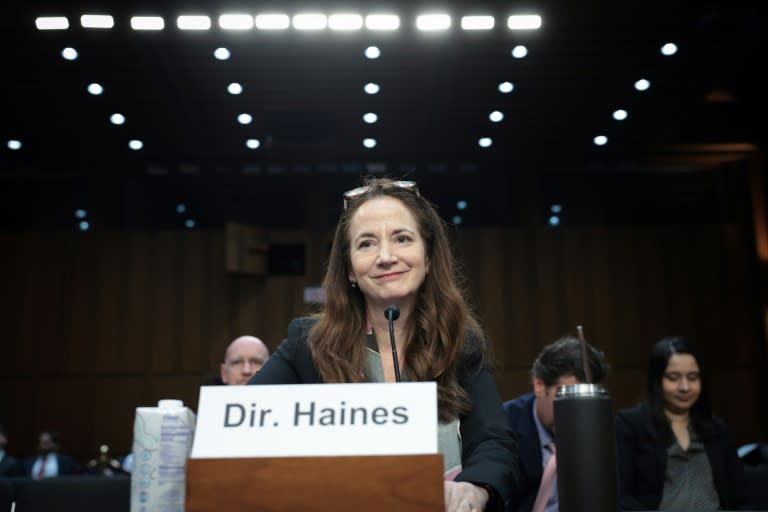US intel chief warns of increasing threats to 2024 election

- Oops!Something went wrong.Please try again later.
- Oops!Something went wrong.Please try again later.
The 2024 US election is under threat from a growing number of foreign actors using ever more sophisticated methods to conduct interference, the country's top intelligence official warned Wednesday.
Director of National Intelligence Avril Haines singled out Russia, China and Iran as the worst offenders -- but added the federal government had never been better prepared to protect American democracy from foreign influence.
"(There) are an increasing number of foreign actors, including non-state entities, who are looking to engage in election influence activities," she told US senators at a hearing on threats to the 2024 US election.
State actors are increasingly using private companies to conduct election influence operations, she said, making it harder to track down the instigators of such efforts.
She warned that innovations in artificial intelligence (AI) had enabled foreign actors to produce seemingly authentic political messages more efficiently, at greater scale, and with content adapted for different languages and cultures.
"And, of course, the most significant foreign actors who engage in foreign influence activity directed at the United States in relation to our elections are Russia, the People's Republic of China, or PRC, and Iran," Haines said.
"Specifically, Russia remains the most active foreign threat to our elections."
Haines's warning came during the first in a series of hearings planned by the Senate Intelligence Committee ahead of November's election, which will almost certainly be a rematch of the 2020 showdown between President Joe Biden and ex-president Donald Trump.
Washington has sanctioned and prosecuted numerous Russians for spreading disinformation to disrupt US democracy in recent years, including over efforts to influence the 2016 presidential election that brought Trump to the White House.
Committee chairman Mark Warner told the hearing that adversaries, including Russia's President Vladimir Putin, were "more incentivized than ever" to interfere.
"Putin clearly understands that influencing public opinion and shaping elections in the United States is a cheap way to erode American and Western support for Ukraine," Warner said.
He echoed Haines's concern that AI-powered audio and video manipulation -- such as a fake robocall in which Biden apparently gave voters the wrong date for January's New Hampshire primary -- were boosting the scale and sophistication of attacks.
"I fear that Congress's inability to pass any new guardrails in the last eight years for AI-enabled mischief really could pose a huge problem," Warner said. "The truth is, these tools are out there and growing in their danger."
Jen Easterly, director of the Cybersecurity and Infrastructure Security Agency, offered a reason for optimism, arguing US election infrastructure had never been more secure.
Giving the lie to claims of widespread fraud in the 2020 election by Trump and his allies, she said there was no evidence that malicious actors "changed, deleted or altered votes or had any material impact on the outcome" of elections in 2018, 2020 or 2022.
ft/mlm

